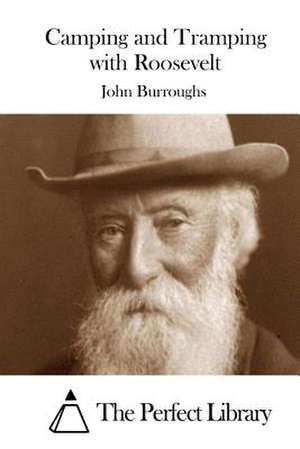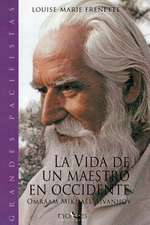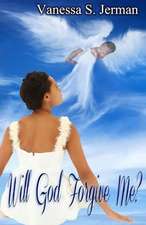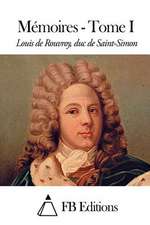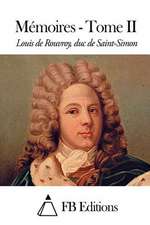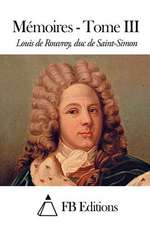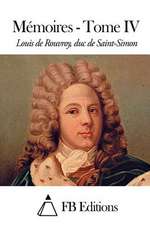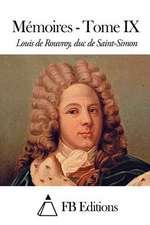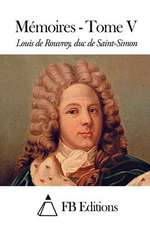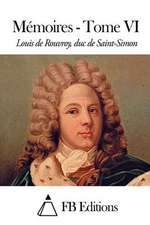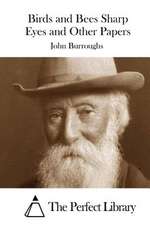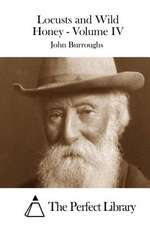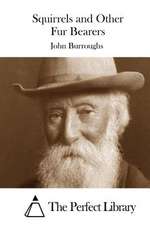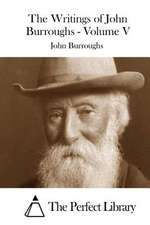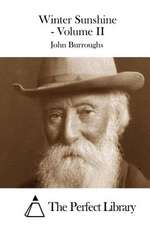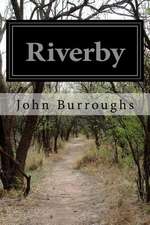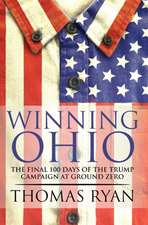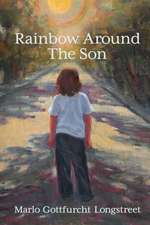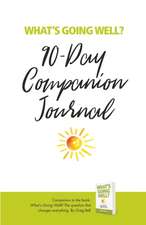Camping and Tramping with Roosevelt
Autor John Burroughs Editat de The Perfect Libraryen Limba Engleză Paperback
| Toate formatele și edițiile | Preț | Express |
|---|---|---|
| Paperback (4) | 62.08 lei 6-8 săpt. | |
| CREATESPACE – | 83.38 lei 3-5 săpt. | |
| CREATESPACE – | 91.43 lei 3-5 săpt. | |
| Blurb – 6 dec 2019 | 62.08 lei 6-8 săpt. | |
| Applewood Books – 31 mai 2012 | 117.44 lei 6-8 săpt. |
Preț: 91.43 lei
Nou
Puncte Express: 137
Preț estimativ în valută:
17.50€ • 18.22$ • 14.79£
17.50€ • 18.22$ • 14.79£
Carte disponibilă
Livrare economică 15 februarie-01 martie
Preluare comenzi: 021 569.72.76
Specificații
ISBN-13: 9781511761543
ISBN-10: 1511761547
Pagini: 42
Dimensiuni: 152 x 229 x 2 mm
Greutate: 0.07 kg
Editura: CREATESPACE
ISBN-10: 1511761547
Pagini: 42
Dimensiuni: 152 x 229 x 2 mm
Greutate: 0.07 kg
Editura: CREATESPACE
Notă biografică
John Burroughs (April 3, 1837 - March 29, 1921) was an American naturalist and nature essayist, active in the U.S. conservation movement. The first of his essay collections was Wake-Robin in 1871.
In the words of his biographer Edward Renehan, Burroughs' special identity was less that of a scientific naturalist than that of "a literary naturalist with a duty to record his own unique perceptions of the natural world." The result was a body of work whose resonance with the tone of its cultural moment explains both its popularity at that time, and its relative obscurity since
Burroughs had his first break as a writer in the summer of 1860 when the Atlantic Monthly, then a fairly new publication, accepted his essay Expression. Editor James Russell Lowell found the essay so similar to Emerson's work that he initially thought Burroughs had plagiarized his longtime acquaintance. Poole's Index and Hill's Rhetoric, both periodical indexes, even credited Emerson as the author of the essay.
In 1864, Burroughs accepted a position as a clerk at the Treasury; he would eventually become a federal bank examiner, continuing in that profession into the 1880s. All the while, he continued to publish essays, and grew interested in the poetry of Walt Whitman. Burroughs met Whitman in Washington, DC in November 1863, and the two became close friends.[8]
Whitman encouraged Burroughs to develop his nature writing as well as his philosophical and literary essays. In 1867, Burroughs published Notes on Walt Whitman as Poet and Person, the first biography and critical work on the poet, which was extensively (and anonymously) revised and edited by Whitman himself before publication.[9] Four years later, the Boston house of Hurd & Houghton published Burroughs's first collection of nature essays, Wake-Robin.
In the words of his biographer Edward Renehan, Burroughs' special identity was less that of a scientific naturalist than that of "a literary naturalist with a duty to record his own unique perceptions of the natural world." The result was a body of work whose resonance with the tone of its cultural moment explains both its popularity at that time, and its relative obscurity since
Burroughs had his first break as a writer in the summer of 1860 when the Atlantic Monthly, then a fairly new publication, accepted his essay Expression. Editor James Russell Lowell found the essay so similar to Emerson's work that he initially thought Burroughs had plagiarized his longtime acquaintance. Poole's Index and Hill's Rhetoric, both periodical indexes, even credited Emerson as the author of the essay.
In 1864, Burroughs accepted a position as a clerk at the Treasury; he would eventually become a federal bank examiner, continuing in that profession into the 1880s. All the while, he continued to publish essays, and grew interested in the poetry of Walt Whitman. Burroughs met Whitman in Washington, DC in November 1863, and the two became close friends.[8]
Whitman encouraged Burroughs to develop his nature writing as well as his philosophical and literary essays. In 1867, Burroughs published Notes on Walt Whitman as Poet and Person, the first biography and critical work on the poet, which was extensively (and anonymously) revised and edited by Whitman himself before publication.[9] Four years later, the Boston house of Hurd & Houghton published Burroughs's first collection of nature essays, Wake-Robin.
